Corruption, Protection and Justice in Medieval Europe
A Thousand-Year History
$39.99 ( ) USD
- Author: Jonathan R. Lyon, University of Chicago
- Date Published: November 2022
- availability: This ISBN is for an eBook version which is distributed on our behalf by a third party.
- format: Adobe eBook Reader
- isbn: 9781009084291
Find out more about Cambridge eBooks
$
39.99 USD
( )
Adobe eBook Reader
Other available formats:
Hardback
Looking for an examination copy?
If you are interested in the title for your course we can consider offering an examination copy. To register your interest please contact [email protected] providing details of the course you are teaching.
-
What was an “advocate” (Latin: advocatus; German: Vogt) in the Middle Ages? What responsibilities came with the position and how did they change over time? With this groundbreaking study, Jonathan R. Lyon challenges the standard narrative of a “medieval” Europe of feudalism and lordship being replaced by a “modern” Europe of government, bureaucracy and the state. By focusing on the position of advocate, he argues for continuity in corrupt practices of justice and protection between 750 and 1800. This book traces the development of the role of church advocate from the Carolingian period onward and explains why this position became associated with the violent abuse of power on churches' estates. When other types of advocates became common in and around Germany after 1250, including territorial and urban advocates, they were not officeholders in developing bureaucracies. Instead, they used similar practices to church advocates to profit illicitly from their positions, which calls into question scholarly arguments about the decline of violent lordship and the rise of governmental accountability in European history.
Read more- Provides a chronological narrative of the history of advocates that synthesizes the extensive German and French scholarship for English-language audiences
- Offers an alternative account of the rise of government, bureaucracy and the state from the twelfth century onwards
- Challenges the standard divisions of European history into “medieval”, “Renaissance” and “modern” periods by showing important elements of continuity in practices of power
Awards
- Winner, 2024 Medieval Institute Otto Gründler Prize, Western Michigan University
Reviews & endorsements
‘In this big, important book, Jonathan Lyon dissolves the distinction between the bad old days of the feudal order and the modern forms of governance that supposedly replaced them. The heterogenous realms of the German-speaking lands take center stage in a new political narrative fit for the 21st century.’ Daniel Lord Smail, Harvard University
See more reviews‘As impressive in its chronological range as it is penetrating in its observations and thought-provoking in its conclusions, Jonathan Lyon’s book will be required reading for anyone interested in how the exercise of power worked on the ground: in the localities, towns and villages of medieval and early modern Europe. A remarkable achievement and a pleasure to read!’ Björn Weiler, Aberystwyth University
‘… the author has succeeded in writing an understandable and pleasant (sometimes even enjoyable) introduction for newcomers to read, while at the same time giving experts material for further reflection.’ Roman Deutinger, H-Soz-Kult
‘… Jonathan Lyon's book can undoubtedly be seen as a useful and important study on the bailiwick, not least because it focuses on the entire temporal development and numerous related facets in a very rich, critical and innovative way.’ Roman Zehetmayer, MIÖG
Customer reviews
Not yet reviewed
Be the first to review
Review was not posted due to profanity
×Product details
- Date Published: November 2022
- format: Adobe eBook Reader
- isbn: 9781009084291
- availability: This ISBN is for an eBook version which is distributed on our behalf by a third party.
Table of Contents
Introduction
1. The First 'Medieval' Advocates
2. Putting Down Roots in Ninth-Century Francia
3. The 'Aristocratization' of Post-Carolingian Advocacy
4. Elite Competition at the Turn of the First Millennium
5. The Limits of Church Reform
6. Pigs and Sheep, Beer and Wine, Pennies and Pounds
7. A History of Violence
8. Weapons of the Not-so-Weak
9. The Murder of Archbishop Engelbert
10. Widening the Lens
11. The Emperor as Vogt, ca. 1000–1500
12. From Lordship to Government?
13. Reframing the History of Violence
14. Crossing the False Divide: Advocates after 1500
15. A Cultural History of the Rapacious Advocate, or: William Tell's Revenge
Conclusion.
Sorry, this resource is locked
Please register or sign in to request access. If you are having problems accessing these resources please email [email protected]
Register Sign in» Proceed
You are now leaving the Cambridge University Press website. Your eBook purchase and download will be completed by our partner www.ebooks.com. Please see the permission section of the www.ebooks.com catalogue page for details of the print & copy limits on our eBooks.
Continue ×Are you sure you want to delete your account?
This cannot be undone.
Thank you for your feedback which will help us improve our service.
If you requested a response, we will make sure to get back to you shortly.
×

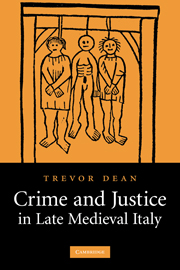
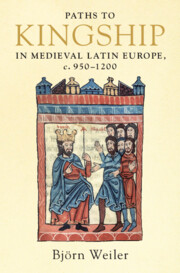
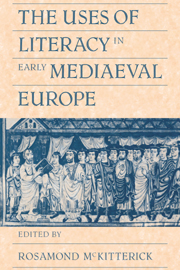
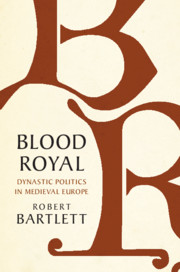
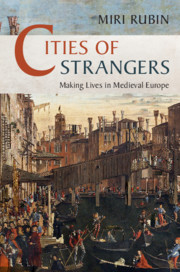
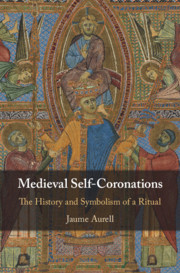
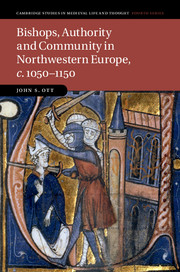

.jpg)
.jpg)
